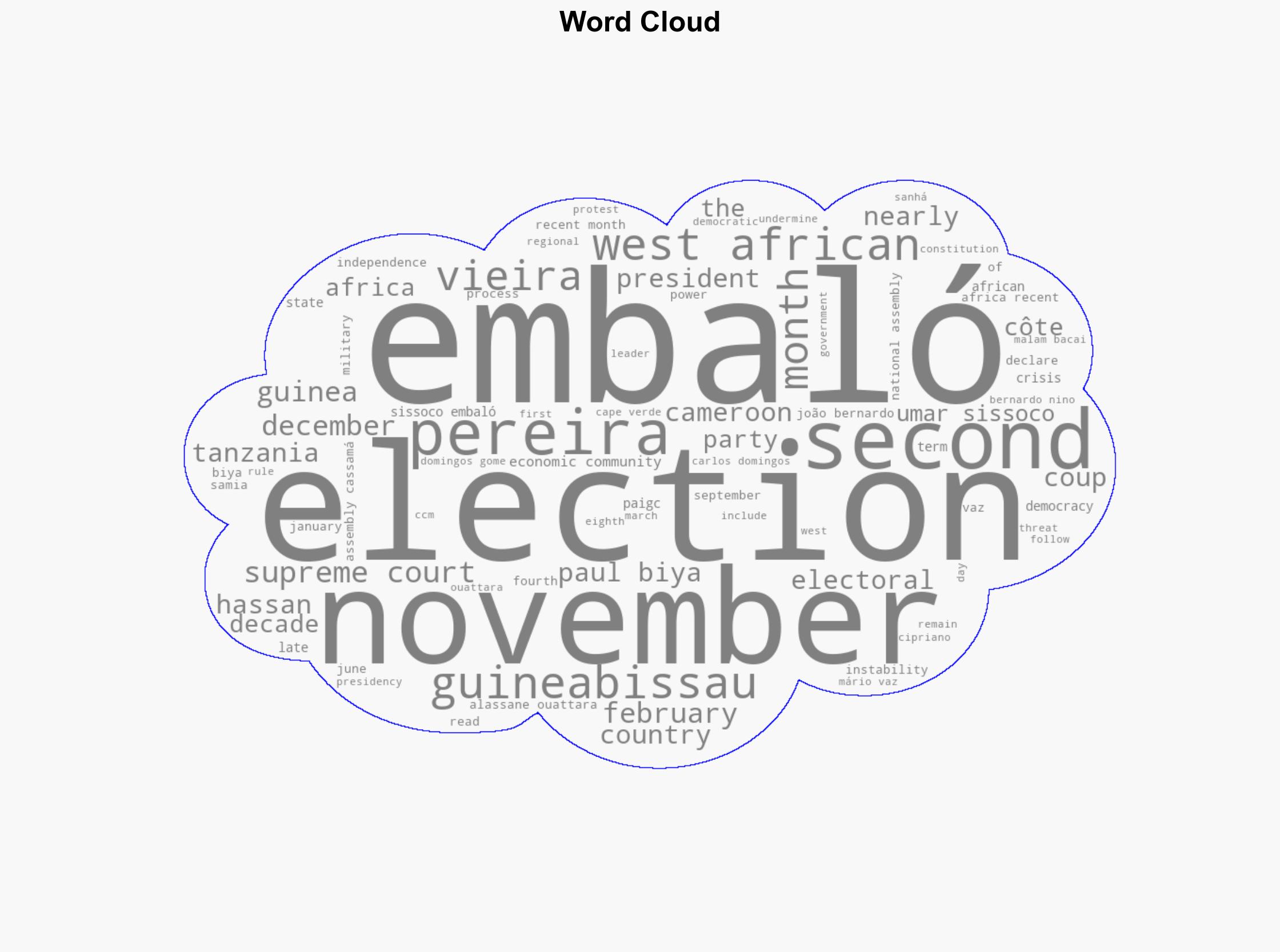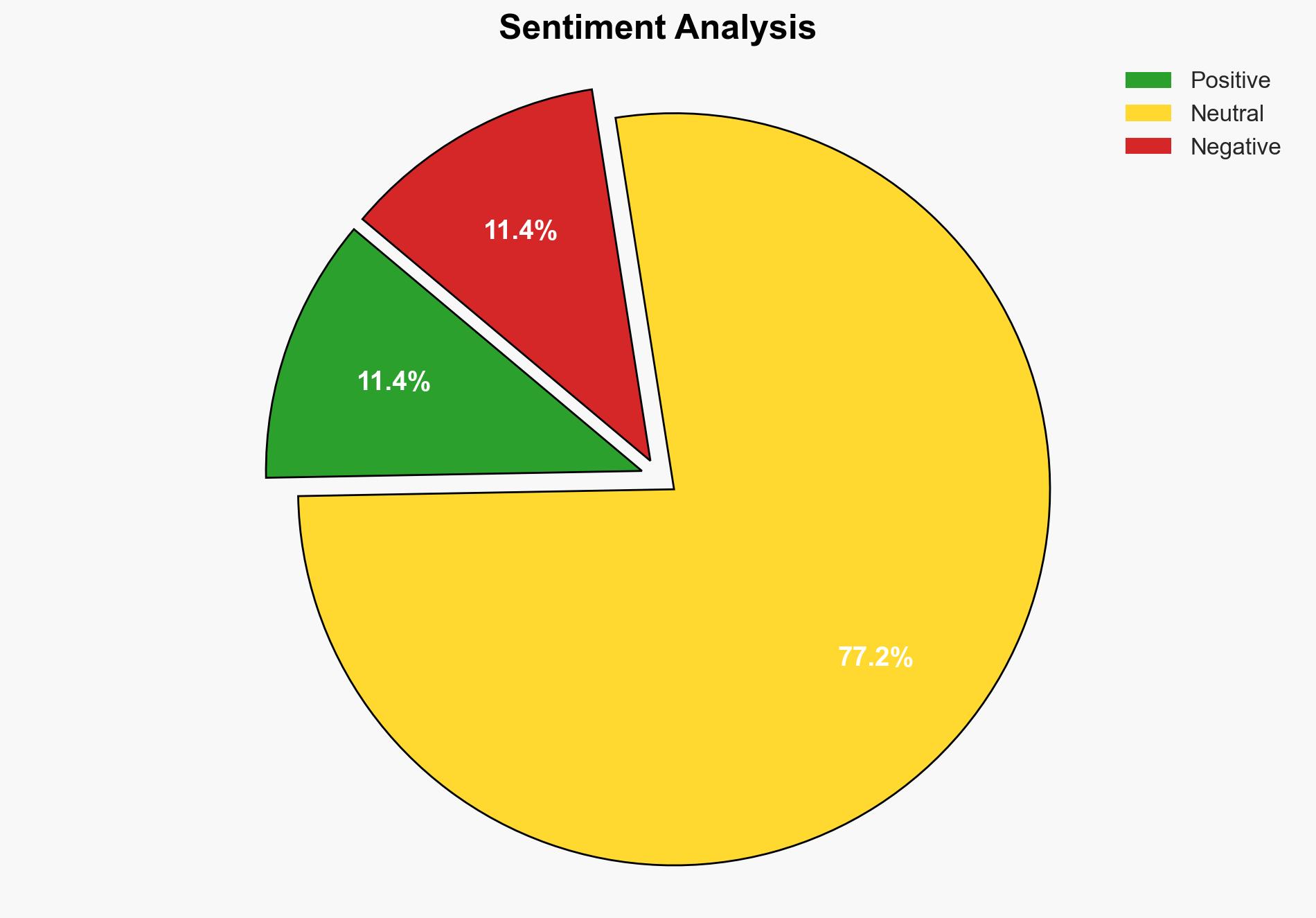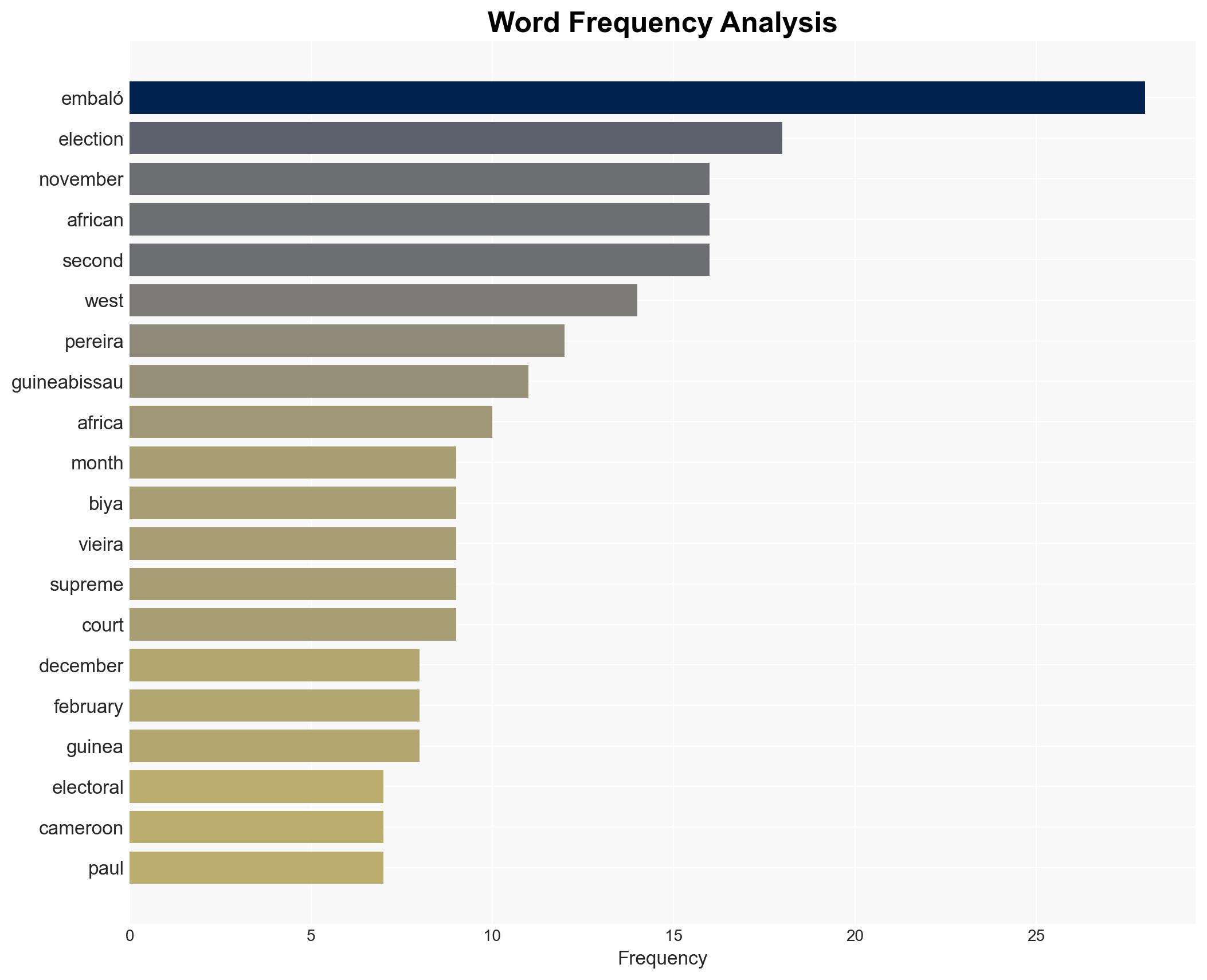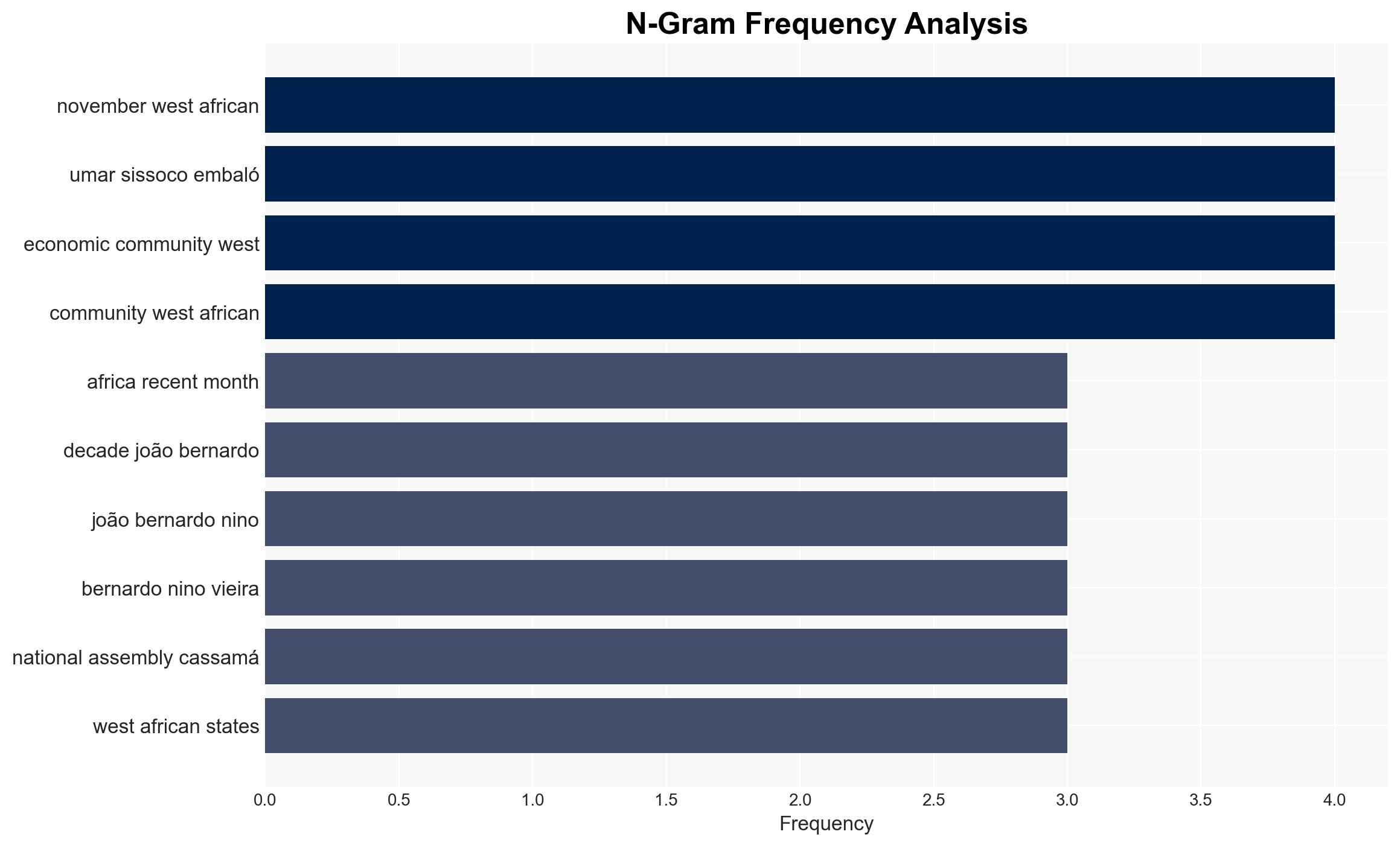Guinea-Bissaus presidential poll has already failed the credibility test – The Conversation Africa
Published on: 2025-11-16
AI-powered OSINT brief from verified open sources. Automated NLP signal extraction with human verification. See our Methodology and Why WorldWideWatchers.
Intelligence Report:
1. BLUF (Bottom Line Up Front)
The upcoming presidential election in Guinea-Bissau is likely to exacerbate existing political instability and undermine democratic legitimacy. The most supported hypothesis suggests that the election will be marred by irregularities, further eroding public trust in democratic institutions. Confidence level: Moderate. Recommended action: International observers should be deployed to monitor the election process, and diplomatic channels should be utilized to encourage transparency and adherence to democratic norms.
2. Competing Hypotheses
Hypothesis 1: The election will proceed with significant irregularities, leading to contested results and further political instability. This is supported by historical patterns of electoral manipulation and the current political climate.
Hypothesis 2: The election will be conducted fairly, leading to a peaceful transition of power. This is less likely given the entrenched political interests and historical precedent of electoral disputes in Guinea-Bissau.
Hypothesis 1 is more likely due to the consistent pattern of electoral manipulation in the region and the lack of strong institutional checks and balances.
3. Key Assumptions and Red Flags
Assumptions: The political elite will prioritize maintaining power over democratic processes. The military may intervene if the election results threaten the status quo.
Red Flags: Reports of pre-election violence or intimidation, lack of transparency in the electoral process, and statements from key political figures undermining the legitimacy of the election.
4. Implications and Strategic Risks
The potential for post-election violence is high, which could destabilize the region further. A contested election could lead to increased military involvement in politics, undermining civilian governance. Economically, instability could deter foreign investment and aid, exacerbating poverty and underdevelopment.
5. Recommendations and Outlook
- Deploy international observers to ensure transparency and fairness in the electoral process.
- Engage with regional organizations to mediate potential disputes and support democratic norms.
- Best-case scenario: A fair election leads to a peaceful transition of power, strengthening democratic institutions.
- Worst-case scenario: Widespread violence and military intervention lead to authoritarian rule.
- Most-likely scenario: The election is marred by irregularities, leading to contested results and ongoing political instability.
6. Key Individuals and Entities
Umar Sissoco Embaló, Carlos Domingos Gomes Júnior, Kumba Ialá, José Mário Vaz, Raimundo Pereira, African Party for the Independence of Guinea and Cape Verde (PAIGC).
7. Thematic Tags
Structured Analytic Techniques Applied
- Cognitive Bias Stress Test: Expose and correct potential biases in assessments through red-teaming and structured challenge.
- Bayesian Scenario Modeling: Use probabilistic forecasting for conflict trajectories or escalation likelihood.
- Network Influence Mapping: Map relationships between state and non-state actors for impact estimation.
Explore more:
National Security Threats Briefs ·
Daily Summary ·
Support us
·





